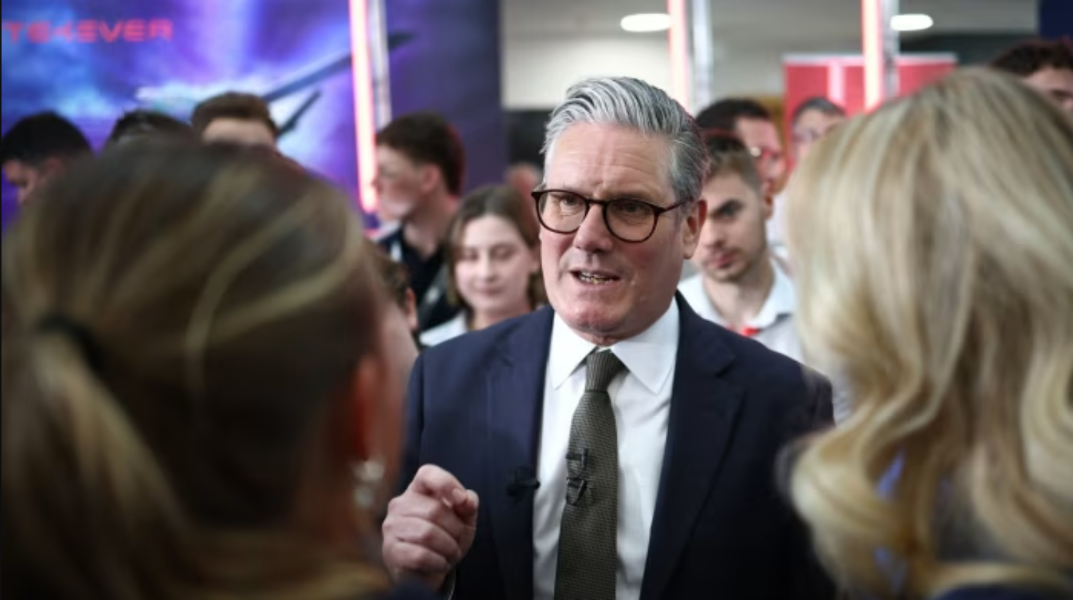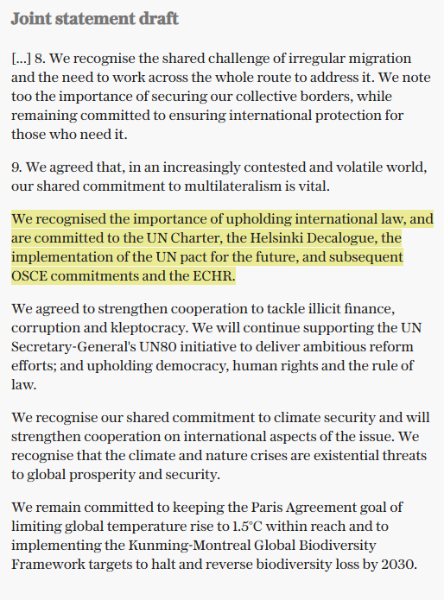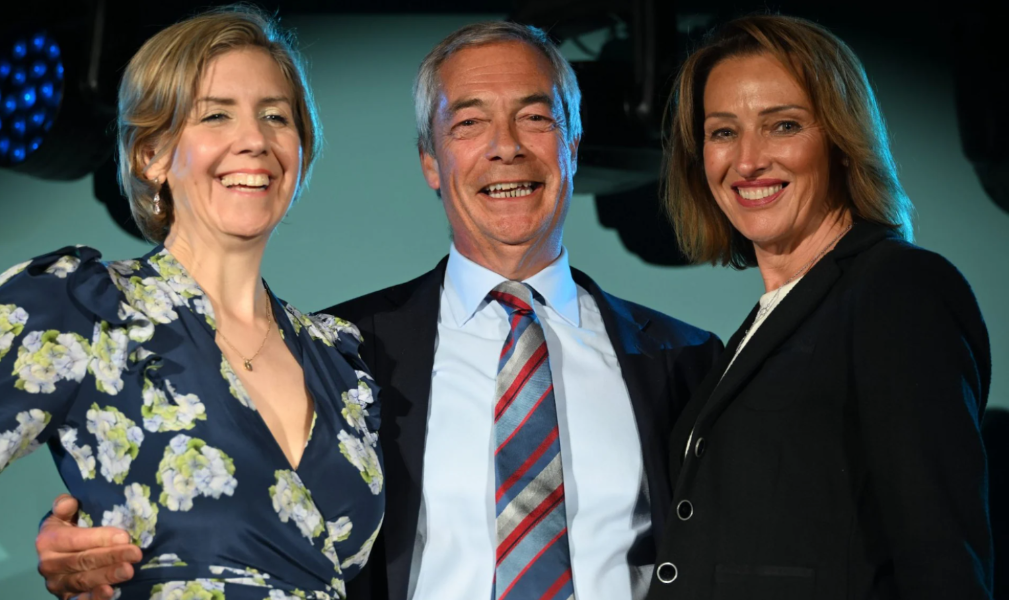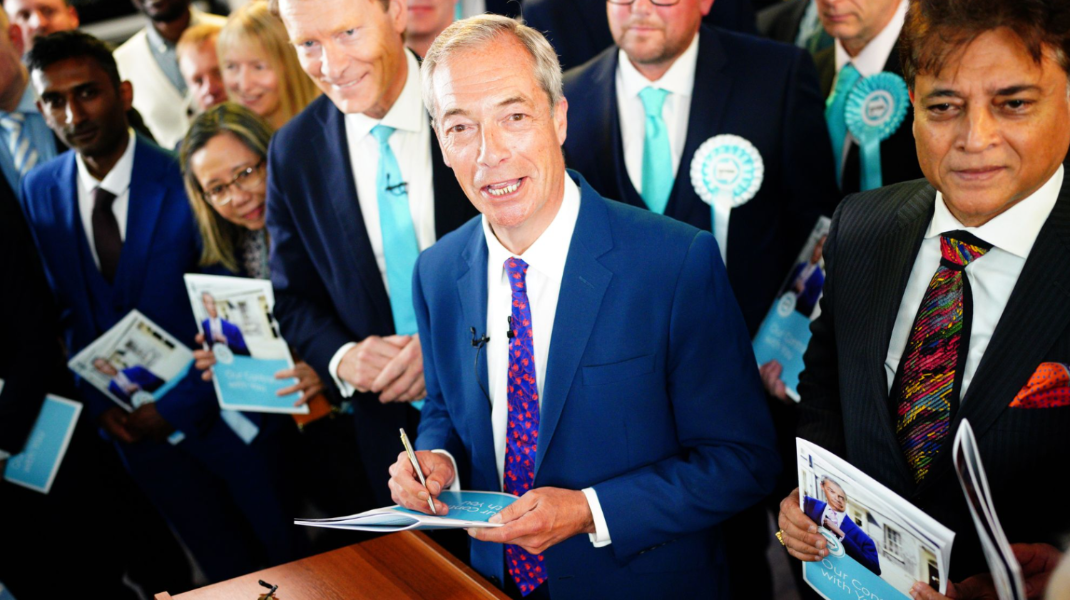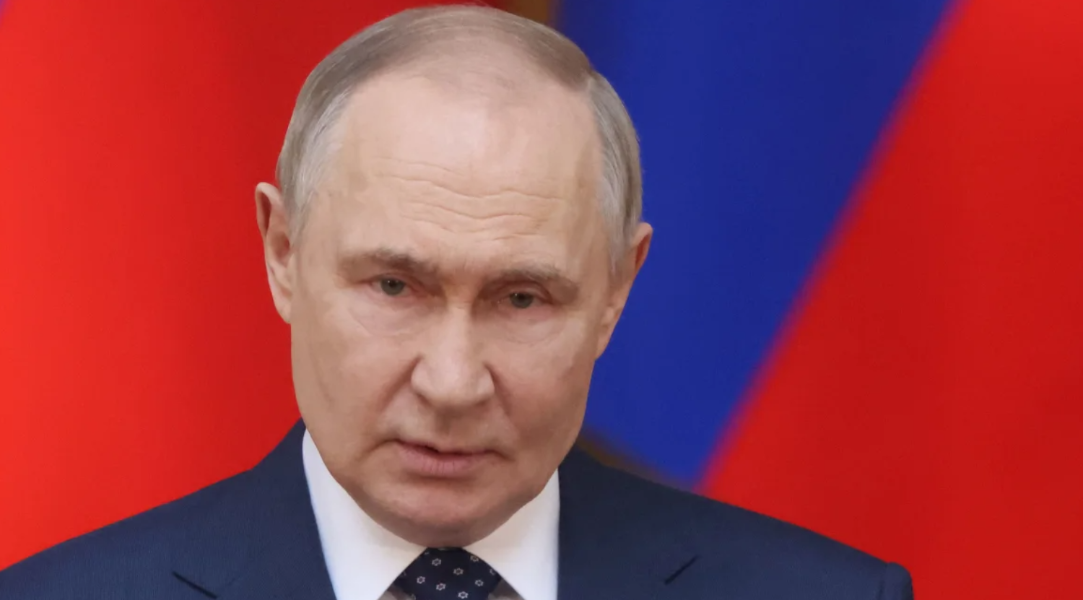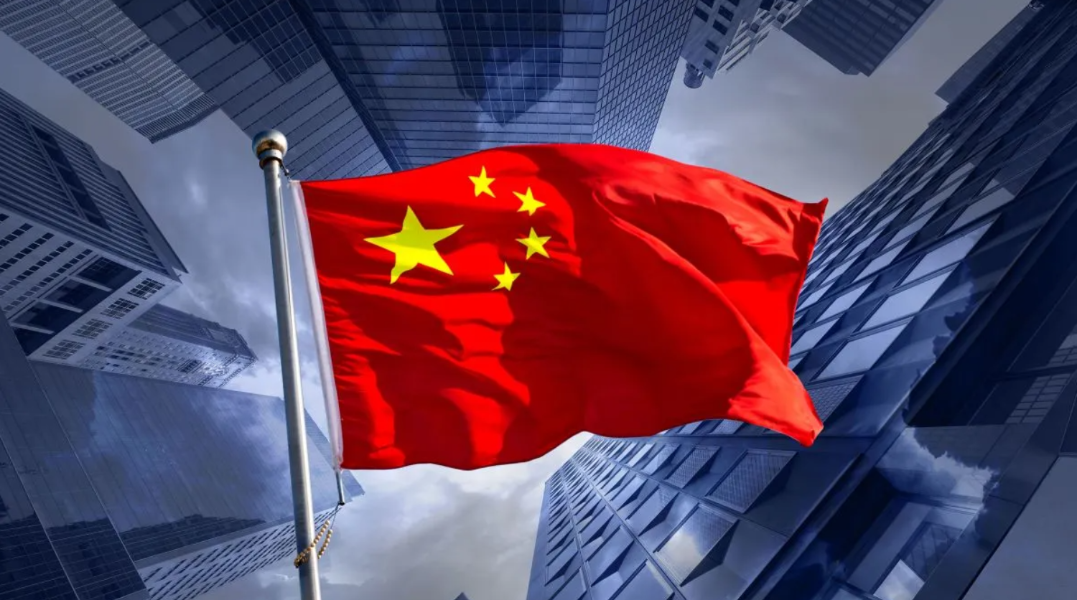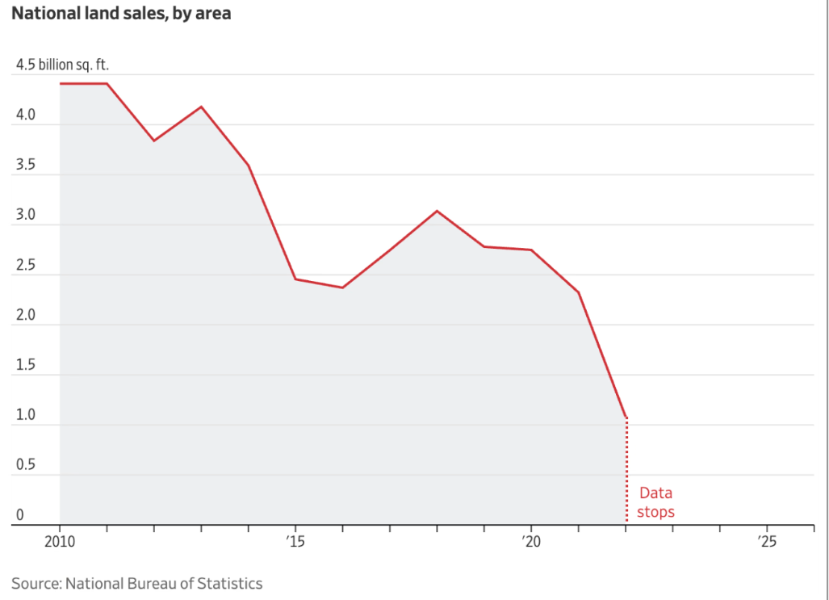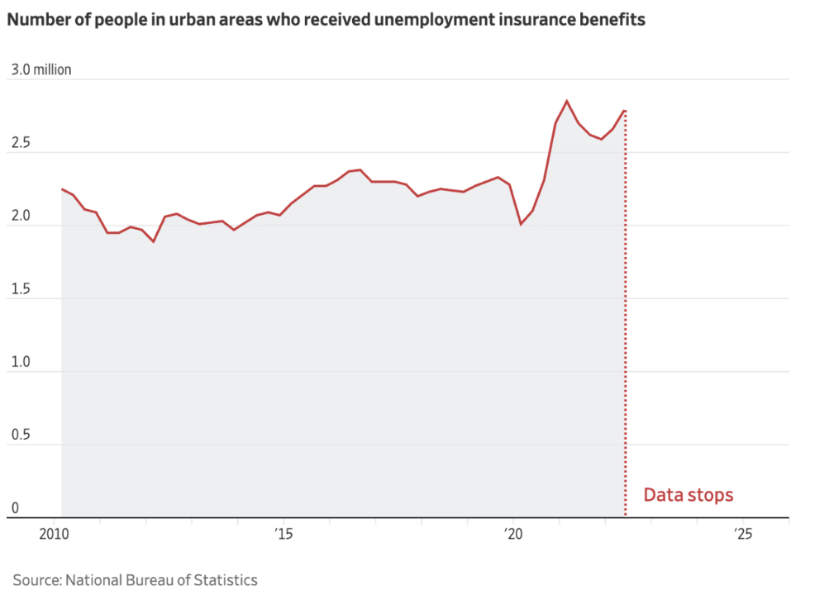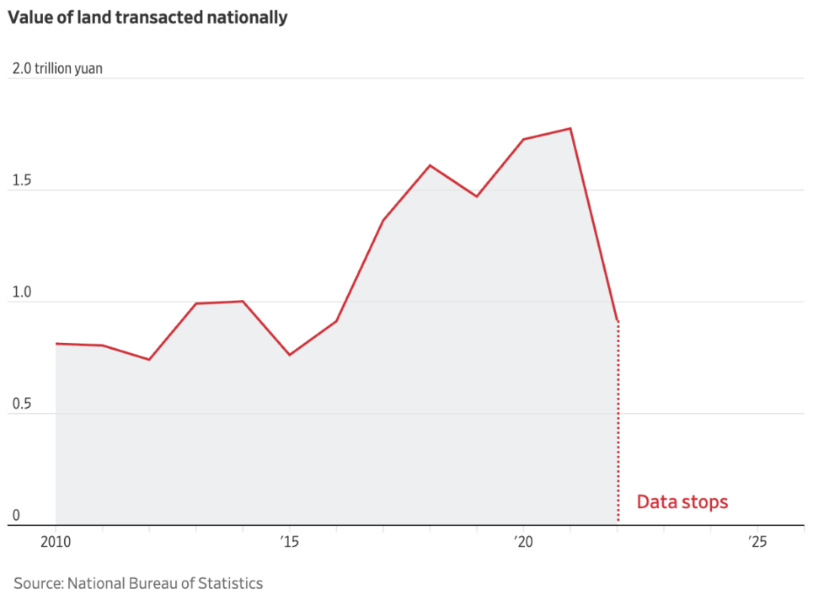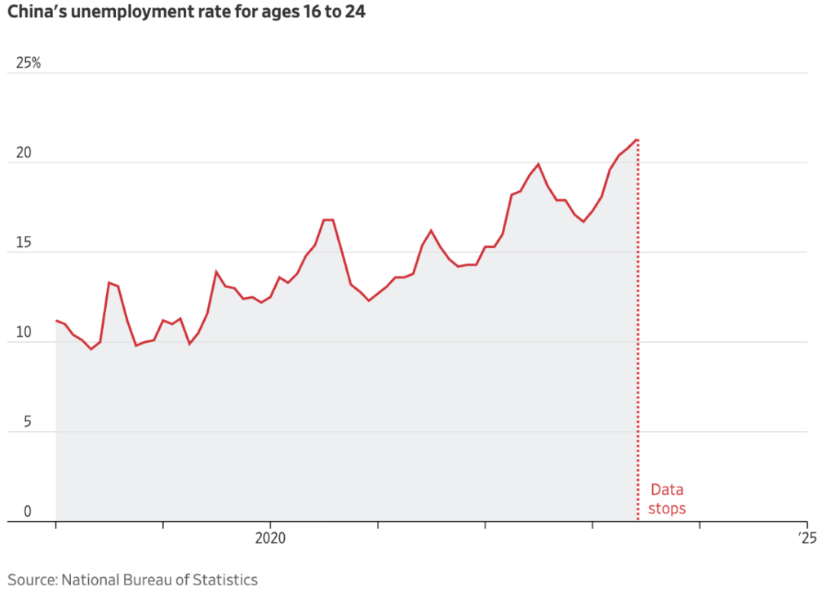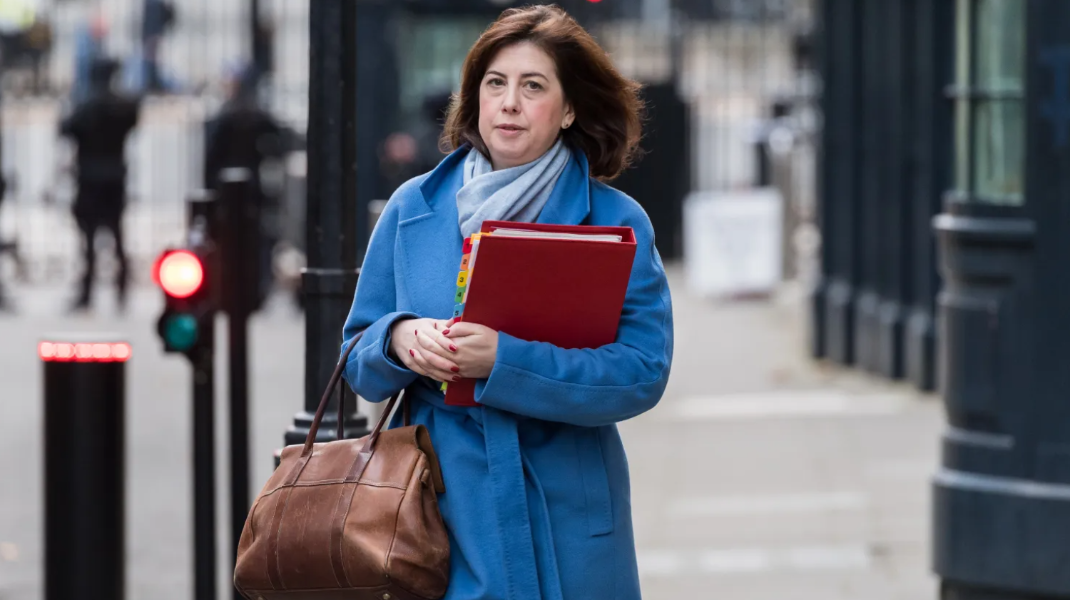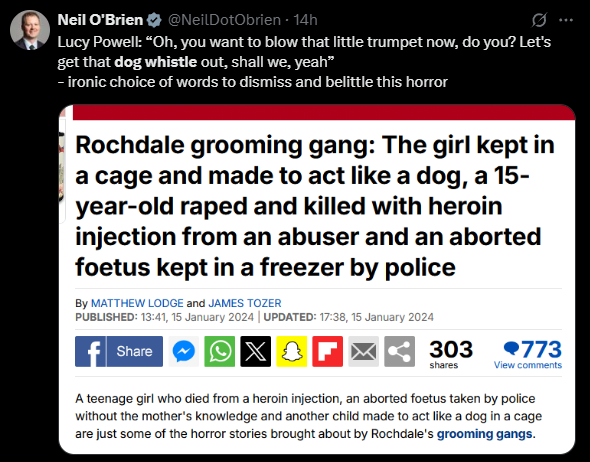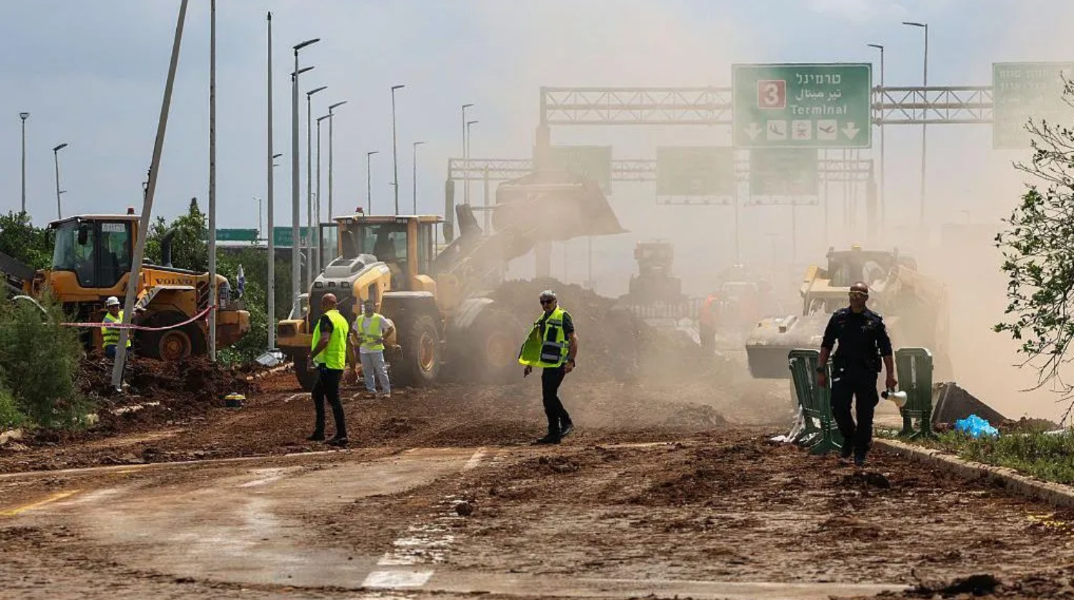-
Posts
10,758 -
Joined
-
Last visited
Content Type
Events
Forums
Downloads
Quizzes
Gallery
Blogs
Everything posted by Social Media
-
Labour MPs Urge Starmer to Reverse Benefits Cuts After Local Election Backlash Sir Keir Starmer is under mounting pressure from within his own party to reverse recent welfare cuts, particularly the controversial decision to remove the winter fuel allowance from millions of pensioners. The backlash follows Labour’s disappointing performance in last week’s local elections, where internal criticism has intensified over policies that MPs say have alienated traditional Labour voters. Labour insiders revealed that one of the most common grievances voiced by constituents on the doorstep during campaigning was the government’s decision to restrict the winter fuel subsidy to only the poorest pensioners. Previously available to around ten million people, the allowance—worth up to £300 per year—was slashed shortly after Labour came to power last year. The fallout from that decision is now being cited as a major factor in Labour’s poor showing at the polls, particularly in heartland areas where support for Nigel Farage’s Reform UK surged. Labour MPs and party officials are increasingly vocal about the damage being done to the party’s reputation. Paul Johnson, head of the Institute for Fiscal Studies, said the winter fuel cuts had a far more significant impact than expected. “I was talking to the head of an international insurance company recently who said that the one thing everyone around the world knows about this government is that it's taking money away from helping the cost of fuel for pensioners,” Johnson told Times Radio. Luke Tryl, director of the think tank More in Common, called the policy Labour’s “original sin,” claiming it played a central role in the party’s election losses. Calls for a policy reversal have grown louder over the weekend, with some Labour MPs predicting a partial U-turn before the end of the year. One moderate Labour MP criticized the party for failing to address the cost of living crisis after campaigning on it so heavily last year. “That would be a very tough sell anyway,” the MP said, “but when coupled with countless millions the government can find to house young men arriving on boats every day, it is unsustainable to say we just can’t afford the winter fuel payment or Pip,” referring to the personal independence payment for the disabled. “Reinstating winter fuel and revisiting Pip changes are the minimum that must be done if we want to prevent a Reform wipeout,” he added. Even some MPs considered loyal to Starmer’s leadership have acknowledged the gravity of the situation. One such MP admitted, “I’m sure the government is reflecting on the issues that contributed to the losses last week, including winter fuel payments and disability and health benefits.” Former transport secretary Louise Haigh also weighed in, urging the prime minister to rethink his self-imposed fiscal restrictions, particularly his refusal to raise income tax, VAT or national insurance. Writing in The Times, she said, “Welfare reforms and the loss of the winter fuel allowance were the primary examples offered as to why the Labour government simply did not look like it understood their priorities.” Haigh criticised the government’s post-election response as “alarming,” accusing it of doubling down rather than reconsidering its course. Further research circulated among MPs over the weekend has compounded the concerns. A report from Health Equity North warned that proposed cuts to disability benefits would have a “devastating” effect on deprived communities, especially in the north-east and north-west of England. “The 10 worst-hit constituencies are all Labour-held, and in ‘Red Wall’ areas,” the report stated. Ros Jones, who was re-elected as mayor of Doncaster with a significantly reduced majority, said that Starmer’s cuts to benefits like Pip and the winter fuel allowance had clearly damaged the party’s support. Despite the public stance from Number 10 insisting no changes are planned, some within the party believe a reversal is inevitable. One Labour figure said, “Nobody in Downing Street now thinks this was a good idea. They all realise it was a mistake. Every single one of them. For now, they’re saying they won’t do anything about it but it feels like ‘not yet’ rather than ‘never’.” With the autumn Budget approaching, pressure is mounting for Labour to correct course before further damage is done. Related Topics: Labour Under Fire as Grooming Survivors Condemn Minister’s ‘Dog Whistle’ Remark Labour Urged to Abandon Tax Pledges to Counter Farage Threat Farage’s Political Earthquake Begins to Rattle Britain’s Foundations Labours Blame Game Commences with Reform Results Fallout Adpated by ASEAN Now from Financial Times 2025-05-07
-
UK Government Set to Tighten Visa Rules Amid Rising Asylum Concerns The UK government is preparing a major overhaul of its immigration policy, aimed at clamping down on the misuse of work and study visas by individuals who later claim asylum. The proposed changes, expected in an Immigration White Paper next week, will focus on nationalities that officials believe are more likely to overstay their visas and enter the asylum system. Among those specifically targeted are visa applicants from Pakistan, Nigeria, and Sri Lanka. According to government sources, visas will be denied to applicants who match the profile of individuals likely to seek asylum and come from countries with high asylum claim rates in the UK. These reforms come in response to growing concern that the UK’s visa system is being used as a “backdoor” to permanent residence through asylum claims. The Home Office plans to use financial evidence submitted during visa applications to identify individuals who may later claim destitution in order to qualify for government-funded accommodation. “We keep the visa system under constant review and where we detect trends, which may undermine our immigration rules, we will not hesitate to take action,” a Home Office spokesperson said. This tightening of policy follows a surge in asylum claims from individuals who initially arrived in the UK legally. Last year, 40,000 asylum applications were lodged by people who had previously held UK visas. That figure accounted for 37 percent of total asylum claims, surpassing even those made by migrants arriving via small boats. Around 10,000 of these individuals ended up in taxpayer-funded housing, such as hotels, at some point during the year. Home Secretary Yvette Cooper is reportedly alarmed by the trend. She is backing measures to prevent those who entered the UK on work or study visas from accessing free accommodation reserved for destitute asylum seekers. Currently, visa holders must prove they can financially support themselves. The new policy will require immigration officials to reassess applicants' financial documents, such as bank statements, when evaluating claims for asylum-related housing. This would make it significantly harder for visa holders to obtain government support unless they can demonstrate genuine need. Further measures include stricter rules for foreign graduates. Those who do not secure graduate-level employment—judged by skill rather than salary—will be required to leave the country. The Home Office is also working with the National Crime Agency to examine links between visa applicants and suspected people-smuggling networks, as well as those who coach individuals on how to exploit the asylum system. The move is likely to stir controversy, particularly among the countries named. Legal experts have warned the policies could be challenged in court for being discriminatory. “To restrict access to seeking asylum based on a person’s nationality would not only be unfair but also discriminatory,” said Enver Solomon, chief executive of the Refugee Council. “In an increasingly volatile world, some people on work or study visas may find their lives at risk because the political situation in their home country has changed. It is right that they are protected from harm and given a fair hearing in the asylum system as well as being provided with basic support if they need it.” Critics of the plan argue that it is politically motivated, coming in the wake of poor election results for the Labour Party, which had pledged immigration reform in its general election manifesto. Chris Philp, the shadow home secretary, dismissed the plans, saying, “This is a desperate response to the thrashing Labour got in last week’s elections, but like everything Starmer offers, it is just performative and won’t make a difference. The system already refuses visas for people who fit the profile of asylum claimants, and asylum seekers already have to prove they are destitute to get accommodation.” Despite the criticism, the government appears committed to pushing forward. As part of its data-driven approach, it is gathering intelligence to help caseworkers recognize patterns in visa misuse. According to official figures, of the 40,000 asylum claims from former visa holders last year, 16,000 came from foreign students, 11,500 from work visa holders, and 9,500 from visitor visa holders. The Home Office's actions reflect a broader effort to tighten immigration controls while addressing public concerns over rising migration and its perceived impact on public services and national security. Adpated by ASEAN Now from The Times 2025-05-07
-
US and Israeli Airstrikes Devastate Houthi Port in Retaliation for Missile Attack on Israel A series of powerful airstrikes by the United States and Israel has reportedly rendered the strategic Red Sea port of Hodeidah in Yemen completely inoperative. The assault comes in direct retaliation for a ballistic missile launched by Yemen's Houthi rebels that struck near Israel’s Ben Gurion Airport over the weekend. According to Israeli officials, the damage inflicted on the port is “devastating” and is believed to have severed a vital logistical and fuel supply line to the Houthis from their Iranian backers. While the Hodeidah port has been targeted in previous operations by both Israel and the United States, officials suggest this strike marks a significant escalation. “This time, the initial indications [are] that this was not just a strike on a port, but a devastating one in terms of taking the port completely out of action according to our initial understandings,” the Israeli official stated. The expectation is that restoring the port's operations will be difficult, if not impossible, in the short term. The airstrike on Hodeidah follows a similar attack last month on the port of Ras Isa, another key entry point for fuel shipments from Iran to Yemen. The closure of both ports could leave the Houthis severely handicapped, cutting them off from crucial resources and diminishing their ability to maintain pressure in the region. The military said it also targeted a concrete plant near Hodeidah that serves as “a significant economic resource for the Houthis” and is used for constructing underground tunnels—a known tactic of the militant group. According to a military statement, the airstrikes were “a response to repeated attacks carried out by the Houthi terrorist regime against the state of Israel,” referencing the ballistic missile that landed near Ben Gurion Airport on Sunday morning. US Secretary of Defense Pete Hegseth had previously accused Iran of supporting the Houthis and warned that American retaliation would follow further provocations. The conflict, already volatile, could be on the verge of escalating further. Some Yemeni factions are reportedly urging for a ground operation, potentially with US support, to push Houthi forces back to their northern stronghold. It was from this region that the group began its takeover of Yemen in 2014, eventually capturing the capital city of Sanaa and controlling large swathes of the country. However, any ground operation would likely require the backing of Saudi Arabia, which launched a massive military intervention against the Houthis in 2015. Despite a ceasefire agreement reached between the two sides, Riyadh remains deeply concerned that renewed Houthi aggression could once again threaten the kingdom. As the situation develops, the potential for a broader regional conflict looms, with multiple global powers now actively involved. Related Topics: Houthi Missile Strike Near Ben Gurion Airport Prompts Netanyahu to Vow Swift Retaliation UK Joins US in Strikes Against Houthis Amid Red Sea Shipping Threat Tragedy Strikes as Dozens of African Migrants Killed in US Air Raid on Yemen U.S. Destroys Houthi Fuel Terminal in Yemen 70 Killed according to Houthi officials Trump Warns Israel Would Lead Strike if Iran Refuses to Abandon Nuclear Ambitions Iran Withdraws Support from Houthis Amid Intensified US Airstrikes US deploys “overwhelming lethal force” against Houthis in Yemen Adpated by ASEAN Now from The Times 2025-05-07
-
Jon Voight Spurs Trump to Propose Foreign Film Tariffs, Alarming UK Film Industry President Donald Trump has announced plans to impose steep tariffs on foreign-made films, a move driven by actor Jon Voight, father of Angelina Jolie. The proposal has triggered serious concerns for the United Kingdom’s thriving film sector, which has become a major destination for international productions, including many American blockbusters. Voight, an 86-year-old Oscar-winning actor best known for roles in Midnight Cowboy and Deliverance, has been appointed by Trump as a “special ambassador” tasked with restoring American filmmaking to what the former president described as its “golden era.” According to Trump, Voight has been actively meeting with studio executives to discuss a revival strategy for domestic film production. The controversial announcement came via Trump’s Truth Social platform, where he wrote, “The Movie Industry in America is DYING a very fast death” and blamed foreign governments for luring away U.S. productions with generous incentives. “Hollywood, and many other areas within the USA are being devastated,” he said. “Therefore, I am authorizing the Department of Commerce, and the United States Trade Representative, to immediately begin the process of instituting a 100 per cent Tariff on any and all Movies coming into our Country that are produced in Foreign Lands.” His commerce secretary, Howard Lutnick, responded simply, “We’re on it.” Trump later elaborated, claiming, “Other nations have been stealing the movie-making capability of the United States. If they are not willing to make a movie inside the United States, we should have a tariff on movies that come in.” He said foreign governments were offering “big money” to attract American filmmakers, calling it a “threat to our country.” UK officials were reportedly blindsided by the announcement. One senior government figure said, “No one had any inkling” and even senior Trump administration members seemed surprised. The proposed tariffs were not discussed in ongoing UK-US trade negotiations, though British negotiators are now pushing for a clause to make it harder for the U.S. to unilaterally impose such tariffs on UK exports. The British entertainment sector is deeply worried. Philippa Childs of the Broadcasting, Entertainment, Communications and Theatre Union (BECTU), which represents 40,000 workers, said, “The government must move swiftly to defend this vital sector and support the freelancers who power it as a matter of essential national economic interest.” She warned the tariffs could be devastating to an industry “only just recovering.” The UK’s film, TV, and radio sector was worth £21 billion in 2023, employing around 250,000 people. British studios have flourished thanks to generous tax breaks and streaming giants like Netflix and Amazon investing heavily in UK-based production. British TV exports to the U.S. alone generate nearly £600 million annually. Tariffs could undercut this business model and impact major productions such as Jurassic World Rebirth, filmed in Hertfordshire, and future James Bond films. High-profile studios like Pinewood in Buckinghamshire, Shepperton in Surrey, and Warner Bros Studios in Leavesden have hosted blockbusters including Barbie, Deadpool & Wolverine, and Mission: Impossible. Pinewood even paused an £800 million expansion earlier this year amid a global downturn in production, a situation that could worsen with U.S. tariffs. It remains unclear how the proposed tariffs would be implemented, given that films are often made across multiple countries and typically controlled by U.S.-based studios like Disney, Universal, and Warner Bros. While Trump’s directive represents an expansion of his push to re-shore economic activity, his administration has not made any final decisions. White House spokesman Kush Desai confirmed on Monday, “The administration is exploring all options to deliver on the president’s directive concerning Hollywood.” Adpated by ASEAN Now from The Times 2025-05-07
- 46 replies
-
- 10
-

-

-

-

-
Trump Administration Urges Dismissal of Abortion Pill Lawsuit, Aligns with FDA Defense In a significant legal move, the Trump administration has called for the dismissal of a high-profile lawsuit targeting the abortion pill mifepristone, aligning itself with the Biden-era Department of Justice in defending the authority of the Food and Drug Administration. In a court filing submitted on Monday, the DOJ argued that the case brought forward by three states—Idaho, Missouri, and Kansas—should not proceed in the Northern District of Texas, emphasizing that the states have no substantial connection to the venue where the original lawsuit was filed. “Aside from this litigation, the States do not dispute that their claims have no connection to the Northern District of Texas,” the DOJ stated. “The states cannot keep alive a lawsuit in which the original plaintiffs were held to lack standing, those plaintiffs have now voluntarily dismissed their claims, and the States’ own claims have no connection to this District.” The legal origins of the case trace back to 2022, when a coalition of anti-abortion physicians and medical groups initially challenged the FDA’s approval and regulation of mifepristone. However, the U.S. Supreme Court ultimately rejected that lawsuit, ruling that the plaintiffs failed to demonstrate personal harm resulting from the FDA’s actions. Without a direct injury, the justices determined that the conservative doctors lacked the legal standing required to bring the case forward. Rather than filing a separate complaint, the three Republican-led states were permitted to intervene in the existing lawsuit, essentially stepping into the shoes of the dismissed plaintiffs. But now, with the Supreme Court having ruled against the original case and the DOJ asserting that the intervening states have no legitimate jurisdictional claim in Texas, the case’s future appears increasingly uncertain. The issue of abortion access—particularly in relation to medication like mifepristone—has remained politically charged in the wake of the Supreme Court’s 2022 decision to overturn Roe v. Wade. Despite mounting pressure from anti-abortion advocates, former President Donald Trump has taken a relatively moderate stance on abortion pills during his 2024 campaign, repeatedly stating that he would not impose federal restrictions on their availability. He has insisted that abortion policies, including access to medication, should be determined by individual states rather than the federal government. This position has disappointed and angered many anti-abortion groups that had strongly supported Trump’s reelection bid, and who continue to campaign for a national ban or tighter federal controls on mifepristone. The drug, which is used in combination with another medication to terminate pregnancies during the first 10 weeks, accounts for roughly two-thirds of all abortions in the United States. While the Trump administration’s legal position in this case does not necessarily mark a broader policy shift, it underscores the complexity of the ongoing legal battles over reproductive rights and the tension between federal regulatory authority and state-led challenges. With the states’ claims now under renewed scrutiny and the lawsuit’s foundation weakened, the path forward for opponents of mifepristone appears increasingly narrow. Adpated by ASEAN Now from The Hill 2025-05-07
-
Brutal Murder of Israeli Businessman in Los Angeles Tied to Illegal Immigrants — One Freed by Sanctuary City The harrowing murder of an Israeli businessman in Los Angeles has shed light on growing concerns over immigration enforcement and sanctuary city policies. Authorities say that three men accused of brutally killing 47-year-old Alexander Modebadze in his home are all illegal immigrants from Georgia, one of whom was previously released by a sanctuary city despite a federal detainer request. According to the Los Angeles Police Department, Modebadze was held captive for hours in his own residence before being savagely beaten to death. The suspects — Pata Kochiashvili, Zaza Otarashvili, and Besiki Khutsishvili — have been arrested and charged with murder. Each of them is now being held on $2 million bail, and federal immigration detainers have been placed on all three. Details have emerged revealing how the men entered and remained in the United States. Otarashvili and Khutsishvili crossed the southern border illegally during the Biden administration. Otarashvili was detained by border agents after illegally entering near Yuma, Arizona, on July 3, 2022. He was released soon afterward and instructed to report to an Immigration and Customs Enforcement (ICE) office in New York, which he did about three weeks later. At that appointment, he was given another date a year out, which he failed to attend. He submitted an asylum application in October 2022, but his court hearing was cancelled for unknown reasons. Khutsishvili entered through San Luis, Arizona, on March 18, 2022. After being transferred to ICE, he was released 12 days later on a $3,000 immigration bond. He initially told officials he planned to move to New York, where he filed an asylum application. He later informed the immigration court of his intention to relocate to Van Nuys, California. His next hearing isn’t scheduled until 2028. Kochiashvili’s immigration history traces back even further. He entered the U.S. legally as a tourist on October 8, 2017, but was required to leave by April 2018 — a deadline he ignored. He later applied for asylum, though his case never led to his removal. In September 2020, he was arrested by the Los Angeles Sheriff’s Department in West Hollywood for burglary, but the case was dropped due to lack of evidence. Federal authorities filed a detainer the day after his arrest, yet local officials released him anyway. He was arrested again in August 2022 in Palmdale for marijuana cultivation, a case that remains pending. Again, ICE filed a detainer the next day, and once more, it was ignored. In a chilling twist, hours after Modebadze’s body was discovered, police found another Israeli businessman, Meni Hidhra — the brother of a prison warden in Israel — murdered in his home in the same neighborhood. The Jewish Journal reported on the second killing, which, although similarly brutal, appears to be unrelated to the Modebadze case. Authorities are currently seeking a Hispanic male suspect, believed to be between 30 and 40 years old, in connection to Hidhra’s death. As investigations continue, the case has stirred political debate over immigration policies and sanctuary jurisdictions. The release of individuals with prior arrests despite ICE detainers has become a focal point of criticism, especially in light of violent crimes like this. Adpated by ASEAN Now from NYP 2025-05-07
-
Correctional Officer Admits Guilt in Brutal Beating Death of Inmate Robert Brooks A New York correctional officer has pleaded guilty to felony manslaughter in connection with the fatal beating of inmate Robert Brooks inside Marcy Correctional Facility, a case that has drawn widespread outrage and cast a harsh spotlight on the state’s prison system. Christopher Walrath, 36, entered his guilty plea on Monday in Oneida County Court before Judge Robert L. Bauer. Walrath is one of six correctional officers initially charged with second-degree murder and first-degree manslaughter after Brooks was beaten to death in a medical examination room on December 9, 2023. During the hearing, Walrath responded “yes” to a series of pointed questions from the judge and prosecutor, confirming that he and his co-defendants assaulted Brooks, that he placed Brooks in a chokehold in violation of departmental policy, and that he failed to report the use of force. He further admitted that the repeated assaults ultimately led to Brooks' death. Walrath remains free on bond under the condition that he not commit any new offenses and that he appear in court as required. Sentencing is scheduled for August 4. The case gained significant public attention after the New York Attorney General’s Office released disturbing body camera footage showing the assault. In the video, Brooks, who was handcuffed to a bed, is seen being punched and kicked by multiple officers. At one point, an officer presses his foot into Brooks’ torso while others strike him. Brooks is later violently pulled from the bed by his shirt collar, with his face clearly bloodied as he is held above the ground. The footage shocked viewers and drew condemnation from state officials, including Governor Kathy Hochul, who labeled the incident a “brutal attack.” In response, she ordered the termination of 14 individuals connected to the assault, including officers, sergeants, and a prison nurse. "Robert Brooks should be alive today," Hochul said in a statement issued following the release of the footage and charges. In February, Hochul announced that six correctional officers, including Walrath, Anthony Farina, Mathew Galliher, David Kingsley, and Michael Mashaw, had been indicted for their roles in Brooks’ death. One additional officer’s name was redacted in the announcement. The five identified co-defendants all pleaded not guilty at their arraignment earlier this year. Walrath’s guilty plea marks the first significant legal development in the case since those charges were filed. Walrath has not entered a plea to the second-degree murder charge. His attorney has not publicly commented on the plea or the ongoing legal proceedings. Adpated by ASEAN Now from NBC News 2025-05-07
-
UK and EU Reaffirm Human Rights Commitment Despite Domestic Pressure Britain and the European Union are poised to make a joint commitment to the European Convention on Human Rights (ECHR) at an upcoming summit, marking a significant moment in Prime Minister Keir Starmer’s efforts to reset the UK’s post-Brexit relationship with the bloc. According to a leaked draft of the joint statement prepared for the summit on May 19, both sides will emphasize the importance of upholding national law and international agreements, including the ECHR. The document states that the UK and EU are “committed” not only to United Nations accords but also specifically to the European Convention on Human Rights. This declaration comes despite growing pressure from some Right-leaning Labour MPs and figures representing Red Wall constituencies, who have urged Starmer to reconsider Britain’s adherence to the ECHR. Rather than aligning with these calls, the leaked draft underlines a continued partnership in upholding human rights obligations. The text also deliberately avoids controversial language around immigration, using the term “irregular” migration in place of “illegal” migration. “We recognise the shared challenge of irregular migration and the need to work across the whole route to address it,” the statement reads. “We note too the importance of securing our collective borders, while remaining committed to ensuring international protection for those who need it.” Starmer has framed the upcoming summit as the beginning of a broader “Brexit reset,” which he hopes will pave the way for improved UK-EU relations after years of tensions under Conservative leadership. One of the key goals of the summit is to establish a new defence and security pact with the EU. Additionally, the Labour government is aiming to initiate talks that would smooth trade across borders, particularly for food products, and facilitate energy exchanges between Britain and Europe. The leaked document emerges against a backdrop of ongoing debate around the role of the ECHR in UK immigration courts. Critics argue that the convention, particularly Article Eight which covers the right to a family life, has been exploited by lawyers to prevent the deportation of foreign criminals and undocumented migrants. Although Labour is working on proposals to reform how the ECHR is applied in court decisions, Starmer and his ministers have made clear that they have no intention of abandoning or circumventing the convention itself. This position has drawn sharp criticism from the Conservative opposition. Chris Philp, the shadow home secretary, condemned the Labour government’s approach, saying, “This document shows Labour will not take the action needed to secure our borders. They are more interested in the ECHR, which is twisted by immigration lawyers and judges to allow dangerous foreign criminals and illegal immigrants to stay in the UK, than they are about protecting our borders.” Philp also criticised the language used in the draft statement. “The reference to ‘irregular’ migration is also absurd – people crossing the Channel or Mediterranean are illegal immigrants. So long as we are led by Keir Starmer, a weak human rights lawyer, our borders will not be secure. It’s no surprise that 2025 so far has been the worst year in history for illegal immigrants crossing the channel under Starmer and Labour,” he said. Despite this criticism, the Labour government appears determined to strengthen cooperation with the EU, while upholding international legal standards. The summit is expected to serve as a litmus test for Starmer’s broader ambitions to reframe Britain’s global posture and reinforce diplomatic ties once strained by Brexit-era divisions. Adpated by ASEAN Now from The Telegraph 2025-05-07
-

Why Nigel Farage Could Really Be Prime Minister by 2029
Social Media replied to Social Media's topic in World News
@bubblegum your post has been removed 17. ASEAN NOW news team collects news articles from various recognised and reputable news sources. The articles may be consolidated from different sources and rewritten with AI assistance These news items are shared in our forums for members to stay informed and engaged. Our dedicated news team puts in the effort to deliver quality content, and we ask for your respect in return. Any disrespectful comments about our news articles or the content itself, such as calling it "clickbait" or “slow news day”, and criticising grammatical errors, will not be tolerated and appropriate action will be taken. Please note that republished articles may contain errors or opinions that do not reflect the views of ASEAN NOW. -
//Closed// @Lewie London Please read the Political Soapbox Rules. Please observe forum rules and the specific description of this forum: Respectful engagement is key. Posts with derogatory nicknames, intentional misspellings or personal remarks will be removed. Spell names correctly for all sides of the debate. Stay on topic and back up any claims with credible sources. https://aseannow.com/topic/1330740-welcome-to-the-political-forum/
-
Israel Pushes for Full Gaza Occupation Amid International Aid Concerns and Diplomatic Tensions The Israeli cabinet has approved a controversial strategy to occupy the entire Gaza Strip, deepening a conflict that has already devastated the enclave and triggered widespread international alarm. Under the new plan, private contractors will be used to distribute humanitarian aid, replacing Israeli soldiers in direct civilian contact. This shift, officials say, will allow military personnel to concentrate on combat operations without the burden of managing aid logistics. The decision marks a significant shift in Israel’s military strategy since it resumed fighting in Gaza last March. Initially focused on clearing territory district by district in a series of raids designed to root out Hamas militants, the Israeli military has now shifted to a longer-term occupation model. Israeli Prime Minister Binyamin Netanyahu’s government believes this approach will exert maximum pressure on Hamas by holding ground permanently and pushing Gaza’s population further south. As part of this effort, private companies—already employed in parts of the West Bank and Jerusalem to run checkpoints under military oversight—will now handle aid distribution in Gaza. The Israeli military has erected a network of new checkpoints across the strip, including the Netzarim corridor, which splits Gaza in two, and a belt that isolates Rafah from the rest of the south. However, the United Nations and humanitarian organizations have denounced the move. A joint statement from UN agencies and NGOs operating in Gaza described Israel’s strategy as “designed to reinforce control over life-sustaining items as a pressure tactic.” The statement warned that “it is dangerous, driving civilians into military zones to collect rations, threatening lives, including those of humanitarian workers, while further entrenching forced displacement.” UN officials have expressed concern that Gaza could run out of essential supplies within days. They dispute Israeli claims that there is sufficient food, water, and medicine to last weeks for the enclave's 2.3 million residents. According to the UN, community kitchens and bakeries are shut down, and aid warehouses are empty. In the absence of established humanitarian infrastructure and with UN agencies sidelined, countries and organizations that previously supported Gaza relief may suspend their funding entirely. The Israeli government has made clear that the new approach is intended not only to pressure Hamas into releasing hostages but to permanently alter the landscape of the conflict. The failed hit-and-withdraw tactics of the past 18 months, which allowed Hamas to reassert itself in cleared areas, led Israel to conclude that only a sustained presence would be effective. Netanyahu’s administration now aims to establish a permanent security buffer by displacing residents from northern Gaza and holding territory indefinitely. “We’re not going to play Whac-A-Mole anymore,” one Israeli official said, referring to earlier strategies that allowed militants to regroup. The military now plans a long-term counterinsurgency operation under the name "Gideon’s Chariots," a campaign that aid groups already warn is unworkable in both humanitarian and political terms. Complicating the situation further is the upcoming visit by former U.S. President Donald Trump to Saudi Arabia. Israel has aligned its strategy with a new U.S.-backed plan aimed at pressing Hamas through a combination of military pressure and diplomatic engagement. Trump had previously threatened to withhold aid from Egypt and Jordan unless they agreed to take in Gaza’s refugees. Arab states including Egypt, Saudi Arabia, Qatar, and the United Arab Emirates are pushing back with an alternative vision: sidelining Hamas while funding reconstruction efforts and ensuring Palestinians remain in Gaza. Egypt, in particular, has put forward its own proposal that seeks to stabilize the situation without forced displacement. Despite deep concerns from the international community, Israeli officials say they will allow a temporary grace period for Hamas to release remaining hostages during Trump’s visit. After that, the full-scale implementation of the new plan is expected to begin. Meanwhile, Hamas appears determined to resist until it receives a concrete commitment from Israel to end the war—something Israel has shown no intention of offering. Hamas, which has shown it has no qualms about tens of thousands of Palestinians dying and seeing the territory destroyed rather than surrendering, will resist giving up the hostages without an Israeli commitment to ending the war. Adpated by ASEAN Now from The Times 2025-05-06
-
Title: Kamala Harris Faces Uncertain Path to 2028 as Democrats Weigh Future Senate Democrats are cautiously navigating the question of whether former Vice President Kamala Harris should make another run for the presidency in 2028, after her decisive loss to Donald Trump last year. While skepticism runs deep among many in her party, few are ready to count her out entirely. Harris recently reentered the national spotlight with a high-profile speech in San Francisco, where she attacked Trump’s first 100 days in office, accusing him of orchestrating “the greatest man-made economic crisis in modern presidential history.” Her return to the public eye comes as she considers a number of political options, including a gubernatorial bid in California in 2026 or another attempt at the presidency two years later. One Senate Democrat, who requested anonymity to speak candidly, didn’t mince words when asked whether Harris should run again: “No.” The senator added that voters had already rendered their judgment and Harris should step aside. Others were more measured in their responses. Senator John Hickenlooper of Colorado, who once ran for president himself, acknowledged Harris’s high name recognition but stopped short of declaring her the party’s future. “I think time will tell,” he said, adding, “I think she will add value to the national conversation. What’s going to happen over the next six to 18 months is going to be lots of Democrats having lots of different opinions about what our priorities should be. What are the values we have to put first?” Hickenlooper also noted that Harris’s 2024 loss does not necessarily preclude a comeback. “Every election is unique. We always try to draw analogies and inferences based on past elections. I don’t think it disqualifies her that she lost.” Many Democrats, wary of the uncertainties in their party’s future leadership, are hesitant to close the door on Harris entirely. Comparisons have been made to the Democratic reaction after Hillary Clinton’s loss in 2016, when party leaders called for a fresh start. “I think it’s time for our party to move to new leadership, a new spokesperson,” said Senator Dick Durbin of Illinois after Clinton’s defeat. Yet Senator Martin Heinrich of New Mexico, unlike others who had opposed a Clinton re-run in 2020, is open to seeing Harris in the mix again. “I’m a big fan of Kamala Harris, I enjoyed serving with her. I think given the time frame that we have, which is very different from what we were dealing with last time, that it’s going to be an open process,” he said. “Anybody who thinks they’ve got what it takes will step into that and someone will emerge.” He added, “I would never underestimate her talent.” Supporters of Harris argue that the circumstances of 2024 were stacked against her. After President Biden dropped out in July, Harris had just over three months to mount a national campaign. “I think you need time to really get to know the candidates and feel comfortable about them,” Heinrich said. “If you’re going to run for president, you don’t get to hide a lot of cards. You really have to be comfortable in your own skin, and even the process of that — in my view — takes a year. She didn’t get the benefit of that.” Despite raising over $1 billion and spending nearly $2 billion in conjunction with super PACs, Harris lost all seven battleground states, including the blue wall of Michigan, Pennsylvania, and Wisconsin. She also lost the popular vote by about 2.3 million, and her defeat was viewed as a drag on down-ballot Democrats. The party lost four Senate seats and its majority. Democratic strategist Steve Jarding still sees Harris as viable. “She obviously was vice president for four years. She got thrown into [a] 107-day election, which may not have been a fair read — probably not fair,” he said. “She’s got a tremendous donor base to work with. She’s got experience. I would be careful if I were the Democrats to throw out, ‘Well, she lost all the battleground states.’ Who has a better résumé, for instance?” Still, Harris's campaign faced setbacks beyond her control, including the backlash over her husband Doug Emhoff’s law firm agreeing to provide pro bono legal services to Trump’s administration. Emhoff criticized the deal, but the optics added to Harris’s challenges. Senator Richard Blumenthal of Connecticut remains hopeful. “I think she’s a potential candidate. There were a good many reasons that she lost, some beyond her control. But she’s a strikingly attractive and effective candidate and public official,” he said. “She would certainly have support. The question would be whether she’s the best candidate, and there will be a lot of debate about that question.” Adpated by ASEAN Now from LBC News 2025-05-06
-
Reform UK Declares All-Out Battle Against Rural Net Zero Projects Reform UK has escalated its opposition to net zero policies by vowing to block renewable energy developments in the British countryside, leveraging the party’s newly acquired control of several local councils. Richard Tice, Reform’s deputy leader and MP for Boston and Skegness, has made it clear that the party intends to wage an aggressive campaign against green infrastructure initiatives, starting in Lincolnshire. “I’m now going to write again to them, saying now that we’ve won these elections, you need to be under no illusion. This is war. We will wage war against you people and your terrible ideas,” Tice told The Telegraph. “If you think that you’re going to do this in the county of Lincolnshire, you are going to regret it. You’re going to waste your money. It’s going to be very painful financially, so you might as well take your money and your daft ideas elsewhere.” Tice’s comments follow Reform UK’s significant gains in the local elections, where the party took control of ten councils. These include eight councils previously held by the Conservatives and others like Durham and Doncaster, which were seized from Labour. In Lincolnshire specifically, Dame Andrea Jenkyns was elected mayor, and the party secured control of the county council, reinforcing its political foothold in the region. According to Tice, Reform UK will use all available legal tools to block renewable projects. “Whether it’s planning blockages, whether it’s judicial reviews, whether it’s lawsuits, whether it’s health and safety notices, we will use every available legal measure to an extreme way in order to frustrate these people,” he declared. The party’s combative stance aligns with earlier statements made by party leader Nigel Farage, who recently urged council employees involved in climate change and diversity initiatives to find “alternative careers very, very quickly.” He also took aim at remote work policies in local government. On social media, party chairman Zia Yusuf echoed this sentiment, stating: “Reform controlled councils will move at great speed to see that all its hiring is merit-based and colour blind. Reform-controlled councils will be where DEI goes to die.” In February, Reform UK outlined its energy policy, which includes introducing taxes on the renewable energy sector and banning the construction of new pylons on land. Instead, Tice advocated for underground cables or rerouting infrastructure offshore around the Wash, claiming this would be “the smarter, quicker thing to do.” He said he had already discussed these ideas with senior National Grid officials, setting the stage for future national policy should Reform achieve broader electoral success. Tice reaffirmed his commitment to derailing green projects: “We will attack these people and these ideas from every angle at every conceivable opportunity. We will attack, we will hinder, we will delay, we will obstruct, we will put every hurdle in your way. It’s going to cost you a fortune, and you’re not going to win. So give up and go away.” Reform’s defiance places it in stark contrast with the Government’s current energy policy. Energy Secretary Ed Miliband has prioritized the expansion of solar and wind energy, lifting restrictions on onshore wind projects soon after taking office. However, some dissent exists within the political establishment. Last week, former Prime Minister Tony Blair questioned the current trajectory of net zero efforts, suggesting they were unrealistic given global energy demands. “Any strategy based on either ‘phasing out’ fossil fuels in the short term or limiting consumption is a strategy doomed to fail,” he said. However, Blair later endorsed Labour leader Sir Keir Starmer’s approach, with a spokesman for the Tony Blair Institute clarifying: “The UK Government is already pursuing these, and their approach is the right one.” Meanwhile, Conservative Party leader Kemi Badenoch has also cast doubt on net zero ambitions, stating last month that achieving the 2050 target is “impossible.” As the political divide over green policy deepens, Reform UK’s gains at the local level may mark the beginning of a broader challenge to Britain’s climate agenda—one that could reshape both countryside landscapes and the national energy debate. Adpated by ASEAN Now from The Telegraph 2025-05-06
-
Trump’s Second Act: Turmoil, Tension, and the Test of Power in the Coming 100 Days As Donald Trump marks the completion of his first 100 days back in office, political veterans and insiders alike are bracing for a far more volatile stretch ahead. “The next 100 days is going to be the most important in modern American politics,” said Steve Bannon, Trump’s former White House strategist. “The reason is that having set the foundation that came off of four years of work, now you have the convergence of these crises. It’s all going to come to a head. The drama is going to be incredible.” Inside Butterworth’s, a Capitol Hill haunt favored by the Maga elite, the air is celebratory. Patrons toast to Trump’s early record with drinks like “Freedom Fizz” and “Presidential Punch” while pamphlets list off achievements such as dismantling DEI initiatives and strengthening border control. However, as laughter fills the room, there’s a shared recognition that the true test of Trump’s second term is only just beginning. The economy is already showing signs of strain under Trump’s aggressive tariff regime, which has sparked market turmoil and forced the administration into defensive posturing. “This was Biden’s Stock Market, not Trump’s,” the president insisted, adding it had “NOTHING TO DO WITH TARIFFS.” But those inside Trump’s circle worry that the 90-day pause on tariffs is only a temporary reprieve. “I wish we could have done the tariffs in the second half of the term,” confided one Trump supporter. “We hate tariffs but we can’t say so.” The court battles are looming. After using the rarely invoked 1798 Alien Enemies Act to push deportations, Trump’s legal strategy has run into hurdles. A federal judge recently ruled that the AEA applies only during an “armed organised attack,” complicating Trump’s plans to deport Venezuelan gang members without court hearings. This may soon escalate to the Supreme Court, possibly culminating in a constitutional crisis. “My recommendation to him is just do what Lincoln did,” Bannon urged. “Declare emergency powers and suspend the writ of habeas corpus, OK, and strip them the f*** out and dare anybody to stop them.” Foreign policy too remains an uncertain front. While a minerals deal with Ukraine was signed, Russia continues its advance, and Trump appears to be losing interest. The State Department announced it would halt mediation efforts between Russia and Ukraine, yet a broader peace plan remains a White House objective. Trump’s critics worry this aim may be undermined by internal discord. The sudden resignation of national security adviser Mike Waltz further rattled Washington. Blamed for the “Signalgate” episode and branded a “neoconservative” by Maga purists like Laura Loomer, Waltz is being replaced temporarily by Marco Rubio, with Stephen Miller rumored as a permanent contender. “A lot of people want this job,” an insider revealed, as tensions among Trump allies like Elon Musk and others begin to emerge. “Speak to senior figures and they will often say completely different things,” said one White House source. Nowhere is division starker than over Iran. Some Trump supporters advocate immediate action against Iran’s nuclear ambitions, while others like Marjorie Taylor Greene are furious. “I campaigned for no more foreign wars and now we are supposedly on the verge of going to war with Iran,” she said. Yet it’s the economy that could determine Trump’s fate. With Wall Street reeling and supporters uneasy, the pressure is on Treasury Secretary Scott Bessent to broker critical trade deals before the tariff pause expires. Trump also faces the daunting task of passing a sweeping tax and spending bill through Congress, despite holding Republican majorities. “What makes or breaks Trump is Congress in the next 30 days — if he can’t get this bill through the economy is screwed,” warned a Capitol Hill veteran. Bannon doesn’t mince words about what’s at stake. “He has to get this massive spending bill right or he’ll end up like Liz Truss, turfed out by the bond market. So you’ve got to get the spending right. You have to get the taxes right. You have to get the reorganisation of the global economy, the commercial relations.” Despite the growing storm clouds, Bannon insists Trump remains unfazed. “Here’s the thing, Trump right now is a man in full. He doesn’t give two f***s, right? He just walks in, he’s throwing thunderbolts, and every institution before him is cratering. The greatest law firms in the world have cratered to him. The newspapers, the media, all of it. I’ve never seen anything like it.” Trump himself echoed the sentiment last week, declaring, “We’ve just gotten started, you haven’t seen anything yet.” Adpated by ASEAN Now from The Times 2025-05-06
-
Why Nigel Farage Could Really Be Prime Minister by 2029 For over a decade, Nigel Farage has insisted that British politics is on the verge of a fundamental realignment. Last Thursday, as Reform UK surged in local elections, winning 677 council seats, two mayoralties and a parliamentary by-election, that long-promised realignment began to take form in earnest. And for the first time, the idea of Farage becoming Prime Minister is no longer far-fetched. The key to understanding this shift lies in a single figure: 30 per cent. According to polling expert John Curtice’s BBC analysis, Reform’s support nationally would have hovered around that mark if elections had been held across all of Great Britain. And in the first-past-the-post system, 30 per cent is a magic number. It’s the threshold at which a party, especially in a fractured multi-party landscape, starts to benefit from the system rather than be punished by it. Labour won a commanding majority last year on just 35 per cent of the vote. In a similar scenario, Reform could conceivably do the same. Farage himself declared on Friday, “Today marks the end of two-party politics — it is finished.” But in truth, this moment doesn’t spell the end of the two-party system. Rather, it marks the potential replacement of one of its pillars: the Conservative Party. That’s precisely what has Tory MPs terrified. Reform’s gains came largely at the Conservatives’ expense, with the Tories losing nearly two-thirds of their local councillors. For the first time, Tory MPs are beginning to see Reform not as a protest vehicle or pressure group, but as a real and present threat — one that could unseat them at the next general election. It’s not just Conservative voters that Reform is attracting. The party outperformed Labour in areas such as Runcorn, Hull, Doncaster, and Durham. But Labour retains a core base that would never dream of voting for Farage, whereas the Conservatives lack such insulation. That makes Reform a more immediate danger to the Tories, and Farage knows it. Among those watching the results with a vested interest was Liz Truss. She quickly took to social media to rail against the “leftist, globalist ideology” she claims has captured Britain’s institutions, calling for a crusade against the “unelected state” and praising Farage’s recent electoral success. There’s little doubt she would like to be invited into his camp — Farage even lauded her disastrous 2022 mini-Budget as “the best Conservative Budget since 1986.” Behind the scenes, she’s reportedly been in talks with figures close to Reform about how to “take on the system.” But she is unlikely to receive an invitation. For all his populist bombast, Farage is politically shrewd. He knows that association with someone like Truss — whose premiership collapsed amid economic meltdown — would taint his brand. Sir Keir Starmer certainly understands this; at Prime Minister’s Questions, he jokingly linked Farage to Truss in a jab that was meant to damage both. And Farage, for his part, has learned over the years to avoid the very “swivel-eyed loons” that David Cameron once warned about. That growing professionalism was visible in Reform’s campaign last week, which was significantly better organised than past efforts under the UKIP or Brexit Party banners. Opponents can no longer rely on Reform candidates being underprepared or self-destructive. They may well be — many are first-timers, after all — but they are going up against a demoralised, cash-strapped Conservative Party and a Labour government still finding its footing. To Starmer’s credit, he acknowledged the seriousness of the public mood. Writing in The Times, he rejected the idea that Reform’s gains were a mere “mid-term protest,” opting instead for a sober pledge: “More money in your pocket, lower NHS waiting lists, lower immigration numbers.” These are the right goals — but they will be tough to meet. Britain faces economic headwinds, the burden of the Ukraine war, and depleted public finances after years of crisis management. The NHS remains overwhelmed, and illegal Channel crossings continue to rise, with Starmer appearing no closer to a solution than Rishi Sunak or any of his predecessors. All of this gives Farage a clear narrative. He is the man who “gets it,” who listens to the anger of the ignored, and who now has a credible electoral machine behind him. If Reform can maintain or even build on its 30 per cent share, it won’t just supplant the Conservatives — it could win outright. It’s too early to forecast the exact contours of a 2029 general election. Britain’s politics remain volatile, and Farage’s movement is still untested on the national stage. But the ingredients are there: a populist insurgent with national name recognition, an established media presence, an electorate disillusioned with both main parties, and a voting system that now works in his favour. So yes, Nigel Farage could really be prime minister — not in a hypothetical fantasy, but in the hard arithmetic of British politics. If Reform holds its ground and consolidates the right while Labour struggles to deliver on tough promises, the unthinkable may become inevitable. Adpated by ASEAN Now from The Independent 2025-05-06
-
Labour Urged to Abandon Tax Pledges to Counter Farage Threat Keir Starmer is under mounting pressure to rethink Labour’s core economic pledges after Louise Haigh, the former transport secretary, called on him to abandon restrictions on tax rises in order to tackle what she described as an “existential” threat from Nigel Farage and Reform UK. In a scathing critique following Labour’s disappointing local election results, Haigh argued that the party must urgently reset its economic strategy to win back disillusioned voters. Writing in The Times, she challenged Starmer’s refusal to consider raising income tax, VAT or national insurance, insisting that Labour’s “self-imposed tax rules” are preventing the bold investment necessary to rebuild public trust. “It is now urgent that we develop a vision and a strategy that is confident in our values, sets the terms of the debate and takes the fight to Reform, rather than letting the fight come to us,” she wrote. “That is the only way to hold our perilous coalition together.” Haigh warned that sticking to current plans risked alienating working-class voters and losing further ground to Farage. “I believe the only way to achieve that is through an economic reset, through ripping up our self-imposed tax rules and by a serious programme of investment and reindustrialisation,” she said. “Because Nigel Farage is not wooing these voters with a traditionally right-wing offer.” Haigh resigned from the cabinet in 2024 following revelations about a past fraud offence, but remains a significant voice on Labour’s left. Her intervention reflects growing unrest among MPs who fear the party’s policy stance is failing to resonate with the public. According to Haigh, Labour’s achievements are being overshadowed by unpopular reforms, including means-testing the winter fuel allowance and welfare cuts. “Voters are desperate for change and they’ve sensed from us that we’re not capable or interested in delivering it,” she said. “For my brilliant former cabinet colleagues, it will be just as frustrating as the unpopular policies are drowning out any good they’re achieving.” Health Secretary Wes Streeting acknowledged the rising influence of Reform, saying the party posed a “real threat” to Labour and that a political “realignment” was underway. “It’s not yet clear whether at the next general election it will be Reform or the Conservatives that are Labour’s main challenges, but we’ve got to take that threat seriously,” he said. “We are going at those challenges as hard and fast as we can.” Streeting defended controversial decisions like cutting winter fuel payments, arguing such choices were necessary to fund critical public services. “Every single measure we’ve taken to raise more money for the National Health Service, for example, has not been popular but the reason we’ve done that is because people wouldn’t thank us if we left the NHS rotting in the crisis that we inherited,” he said. Dan Carden, chair of the Blue Labour group, offered a bleak assessment of the party’s standing with working-class voters. “It was the working class that turned its back on Labour last Thursday,” he said. “They understand that the present system is not working in their interests or for their values. People feel abandoned — not just economically, but morally.” Labour backbencher Emma Lewell echoed those concerns, urging a fundamental shift. “The Labour Party doesn’t need to lurch right or left, we need to do what we say we will do and do it in line with our core values and principles of social justice and fairness,” she wrote. In a personal reflection on recent campaigning in Runcorn, Haigh recounted how voters questioned Labour’s commitment to renationalisation. Despite having legislated for rail renationalisation, she found herself unable to convince a sceptical constituent. “Voters are desperate for change and they have sensed from us that we are not capable or interested in delivering it,” she said. Haigh concluded with a stark warning that unless Labour clearly defines its values and confronts the populist appeal of Reform head-on, it risks repeating the Conservative Party’s collapse. “Ultimately, we must be more confident in our own values, not chased off the pitch by Reform,” she said. “As Alastair Campbell said last week: ‘This Labour government’s got to be more Labour, not more anything else.’” Related Topics: Farage’s Political Earthquake Begins to Rattle Britain’s Foundations Labours Blame Game Commences with Reform Results Fallout Adpated by ASEAN Now from The Times 2025-05-06
-
Putin Expresses Hope to Avoid Nuclear Option in Ukraine as War Drags On Russian President Vladimir Putin has said he hopes there will be no need to resort to nuclear weapons in Ukraine, even as he insisted that Russia possesses the strength and resources to bring the conflict to its “logical conclusion.” The comments, published Sunday, came during a state television documentary commemorating Putin’s 25 years in power. Putin, who launched a full-scale invasion of Ukraine in February 2022, triggering the largest ground war in Europe since World War II, described the war as a decisive confrontation with the West. In the televised film titled Russia, Kremlin, Putin, 25 Years, he said: “They wanted to provoke us so that we made mistakes. There has been no need to use those weapons … and I hope they will not be required.” The Russian leader, shown seated beside a portrait of Tsar Alexander III—a symbol of autocratic rule and national strength—declared, “We have enough strength and means to bring what was started in 2022 to a logical conclusion with the outcome Russia requires.” The war has led to hundreds of thousands of casualties, and while Western leaders remain committed to supporting Ukraine, former U.S. President Donald Trump has repeatedly criticized the ongoing conflict. Trump has characterized the war as a proxy struggle between the United States and Russia and has voiced frustration at the lack of progress toward peace. “He wants to end the bloodbath,” his campaign has said, though the Kremlin has dismissed the possibility of rapid peace, citing the complexity of the situation. The invasion has been widely condemned by U.S. President Joe Biden, European leaders, and Ukrainian officials as an imperialist attempt by Russia to reclaim territory and influence. They maintain that Russia must be defeated to preserve Ukraine’s sovereignty and deter further aggression. Putin, however, continues to frame the war as a reaction to decades of Western humiliation, particularly the post-Cold War expansion of NATO into what he views as Russia’s sphere of influence. He sees the war as a historical turning point in Russia’s relations with the West, which he accuses of trying to contain and marginalize Moscow since the fall of the Berlin Wall. Trump, meanwhile, has warned the conflict could spiral into World War III if not resolved, a sentiment echoed by other prominent figures. In late 2022, then-CIA Director William Burns warned of the real possibility that Russia might resort to nuclear weapons—an assertion that Moscow swiftly denied. Putin’s remarks were delivered in the context of a carefully managed state documentary that provided a rare look into his personal life, including scenes of him offering chocolate and fermented milk drinks to Kremlin journalist Pavel Zarubin in his private kitchen. Reflecting on his quarter-century in power, Putin claimed he remains closely connected to the Russian people. “I don’t feel like some kind of politician,” he said. “I continue to breathe the very same air as millions of Russian citizens. It is very important. God willing that it continues as long as possible. And that it doesn’t disappear.” Putin also recounted a moment of vulnerability during the 2002 Nord-Ost theater siege in Moscow, when Chechen militants took over 900 people hostage. He said he knelt in prayer for the first time during that crisis, in which more than 130 hostages died. Now the longest-serving Kremlin leader since Josef Stalin, Putin presides over a deeply polarized Russia. While critics denounce him as a dictator presiding over a corrupt and fragile system, his supporters view him as a stabilizing force who restored national pride after the chaos of the 1990s. Russian pollsters continue to report approval ratings for Putin above 85%, though independent verification is difficult in a tightly controlled media environment. As the war enters its third year, the prospect of peace remains elusive, but Putin’s remarks suggest that while nuclear weapons remain part of Russia’s arsenal, he still views their use as a last resort. Adpated by ASEAN Now from CNN 2025-05-06
-
Australia Launches World’s Largest Battery-Electric Ship in Maritime Milestone In a moment hailed as a transformative step for green transportation, Australia this week unveiled the world’s largest battery-powered ship. The vessel, named Incat Hull 096, was launched from the Incat Tasmania shipyard in Hobart, drawing hundreds of onlookers who gathered to witness what is being called a breakthrough in sustainable maritime engineering. “This is a historic day – not just for Incat, but for the future of maritime transport,” declared Robert Clifford, chairman of Incat Tasmania, during the unveiling ceremony. His words underscored the gravity of the achievement, which he described as the most ambitious and significant project the company has taken on in its four-decade history. “We’ve been building world-leading vessels here in Tasmania for more than four decades, and Hull 096 is the most ambitious, most complex, and most important project we’ve ever delivered. This ship changes the game,” he said. The vessel was commissioned by Buquebus, a South American ferry operator, and will serve as a link between Buenos Aires, Argentina, and Uruguay. Measuring 426 feet in length, Hull 096 has the capacity to transport up to 2,100 passengers and 225 vehicles across the Rio de la Plata — all powered by electricity alone. Eight electric-driven water jets propel the ship, which also holds the title of the world’s largest electric vehicle. The battery system onboard is unprecedented in scale, featuring over 551,000 pounds of lithium-ion batteries and a storage capacity exceeding 40 megawatt-hours. This enormous power reserve enables the ship to maintain both speed and efficiency on a commercial scale, marking a shift in what is considered feasible for electric propulsion in large vessels. Incat’s chief executive, Stephen Casey, emphasized the broader implications of the launch. “Hull 096 proves that large-scale, low-emission transport solutions are not only possible, they are ready now,” he said, pointing to the ship as a real-world demonstration of how green technology can scale up to meet global transportation needs. Though the final cost of the ship has not been publicly disclosed, its impact on the industry is already making waves. The ship’s interior is still under construction, with plans for a 7,546-square-foot duty-free retail deck — the largest shopping space ever to be installed on a ferry — further underlining its scale and ambition. As the maritime world looks to decarbonize, Incat Tasmania is positioning itself at the forefront of this evolution. Clifford affirmed the company’s commitment to sustainability beyond this single vessel, stating, “We plan to build as many sustainable ships as possible for the global market, both here in Australia and overseas.” The launch of Hull 096 not only represents a technical feat but also sets a precedent for the future of sea travel, merging high-capacity transportation with zero-emission technology in a way that until now was largely theoretical. Adpated by ASEAN Now from NYP 2025-05-06
-
Behind the Veil: As China’s Economy Falters, Key Data Vanishes from Public View China’s economy is facing increasing scrutiny, not just for its sluggish performance but for how little is now known about it. In a sharp departure from the past, Beijing has stopped publishing hundreds of key statistics that were once crucial to understanding the health of the world’s second-largest economy. From land sales and foreign investment to unemployment and even soy sauce production, swaths of data once available to researchers, economists, and investors have simply disappeared. “This is not just about numbers—it’s about narrative control,” said one analyst familiar with China’s data practices. According to a Wall Street Journal analysis, the missing statistics now number in the hundreds, and most of them have vanished without explanation. The absence coincides with growing signs of distress in China’s economy: spiraling debt, a real estate sector in decline, and rising joblessness. Even the National Bureau of Statistics has grown more opaque. When an anonymous user on its website questioned the disappearance of certain urban unemployment figures, the bureau responded only that the ministry responsible for the data had ceased sharing it. The timing of this blackout is critical. As the U.S.-China trade war bites deeper into China’s export-dependent industries and global economic growth wavers, transparent economic data has become more essential—and more elusive. China’s GDP growth figures have long been met with skepticism. In 2023, the government reported 5.2% growth and in 2024, exactly 5%, matching its official target. But analysts have raised serious doubts. Many believe the real number could be 2 to 3 percentage points lower. “It would have been more credible if authorities had released something lower,” one economist told the Journal, pointing out that other indicators like retail sales and construction painted a gloomier picture. Some institutions have begun turning to indirect measurements to paint a clearer picture. Economists use satellite imagery to track nighttime lights, monitor electricity use at cement factories, and even analyze Baidu’s mapping data to estimate business activity. One researcher resorted to tallying news stories about gym and beauty salon owners vanishing with prepaid customer money as a proxy for economic distress. Concerns about the reliability of official data are nothing new. In 2007, former Premier Li Keqiang privately told the U.S. ambassador that provincial GDP figures were “man-made” and unreliable, preferring to track electricity consumption, rail freight, and bank loans. “Official GDP figures were ‘for reference only,’” he said, according to a leaked diplomatic cable. The disconnect between official figures and reality has never been more stark. In 2024, Goldman Sachs used import data as a proxy for domestic consumption and estimated actual growth at 3.7%. Rhodium Group, a U.S.-based research firm, put it even lower—at just 2.4%. Gao Shanwen, a prominent economist at the state-run SDIC Securities, publicly estimated that growth “might be around 2%” in recent years. He was swiftly disciplined and banned from speaking publicly. The Securities Association of China later reminded brokerages to ensure their analysts “play a positive role” in supporting investor confidence. Efforts to shape perception have become more forceful. In August 2023, as youth unemployment soared and viral posts showed jobless graduates sprawled on sidewalks in silent protest, the government abruptly halted the publication of the youth jobless rate after it hit a record 21.3%. Economist Zhang Dandan had estimated the real figure might be 46.5%. When a new series was introduced five months later, it showed just 14.9%—excluding nearly 62 million full-time students. Economists were baffled, noting that international standards typically count students seeking work as unemployed. Perhaps most telling was the reaction to an investor exodus in early 2024. As the economy faltered and $2 billion in foreign capital fled Chinese equities, Shanghai and Shenzhen stock exchanges stopped releasing real-time data on foreign inflows and outflows. They claimed the move aligned with “international practices,” even as the CSI 300 index slid for four straight months. For a country facing mounting internal and external pressures, maintaining an image of stability has become paramount. But in doing so, China has obscured the economic picture precisely when the world—and its own citizens—need clarity most. Adpated by ASEAN Now from Wall Street Journal 2025-05-06
-
//Closed// Please adhere to the rules of the Political Soapbox forum when starting a new topic. Adding one line with an image is not a topic and contravenes the rules contained in the link provided.
-
Labour Under Fire as Grooming Survivors Condemn Minister’s ‘Dog Whistle’ Remark Survivors of grooming gang abuse have fiercely criticised Labour frontbencher Lucy Powell after she referred to the scandal as a “dog whistle” issue during a BBC Radio 4 broadcast. Her comments have sparked widespread anger from victims, campaigners, and political opponents, with many accusing her of trivialising a deeply traumatic and ongoing national issue. Sarah Wilson, who was abused from the age of 11 by gangs in Rotherham and has since become a prominent campaigner, expressed her deep disappointment with Powell’s remarks. “This is what victims and survivors have been up against all these years. This is why we weren’t listened to. They never cared, and they never will. [They] totally dismissed survivors and our experiences of being groomed,” Wilson wrote in response to a video clip shared online. Former senior Labour adviser Tom Baldwin and Commentator and Reform UK supporter Tim Montgomerie discuss the reaction to senior minister Lucy Powell calling for grooming gang inquiries a "dog whistle" The controversy began when Powell, MP for Manchester Central, responded dismissively to a question posed by Reform UK supporter Tim Montgomerie on Any Questions, in which he asked about her views on a Channel 4 documentary about rape gangs. Interrupting, Powell retorted: “Oh, we want to blow that little trumpet now, do we? Yeah, OK, let’s get that dog whistle out.” Her comments were met with immediate backlash. Scarlett, a 20-year-old grooming survivor from Greater Manchester who featured in the documentary, and her father Marlon, said they felt retraumatised. “Scarlett and I, who shared our story in the documentary despite the emotional challenges, are outraged by Lucy Powell,” Marlon said. “We feel abused and disrespected once again, and we did not anticipate this kind of treatment from our government leaders. You have used us as a political tool for an excuse to be critical towards Conservatives rather than supporting a public inquiry. You should be ashamed.” Despite mounting pressure and calls for her resignation, including from within her own party, Powell will remain in post as Leader of the House of Commons. Health Secretary Wes Streeting confirmed on Sunday that she would not be stepping down, saying: “Yes. I think she made a genuine mistake, she’s owned up to it, she said sorry and we’ll move on.” He added that Powell was “mortified” by the reaction and deeply regretted her words. Powell released a statement on Saturday night attempting to clarify her position. “I would like to clarify that I regard issues of child exploitation and grooming with the utmost seriousness. I’m sorry if this was unclear. I was challenging the political point scoring around it, not the issue itself. As a constituency MP, I’ve dealt with horrendous cases,” she said. A source close to Powell also stated that she had privately reached out to victims in Manchester to offer support and would continue to engage with them. Nonetheless, criticism continued to mount from both within and outside the Labour Party. One Labour peer told The Telegraph, “Most people I’ve spoken to think she should be sacked. Nobody expects her to survive this, and nor should she. It’s outrageous.” Labour’s handling of grooming gang scandals has also come under renewed scrutiny. The party recently dropped its plan for five specific local inquiries in favour of a more “flexible approach,” allowing councils to determine how to address the issue. This could include full inquiries, but may also involve victim panels or internal audits. Meanwhile, the Government is awaiting the results of an audit led by Baroness Casey into the scale and nature of grooming and the demographic profile of the perpetrators. Prime Minister Rishi Sunak’s government has committed to further action, while Labour leader Sir Keir Starmer has so far resisted calls for a national statutory inquiry, despite support for one from senior Labour figures such as Andy Burnham and Dan Carden. For many survivors, Powell’s remarks represent a painful reminder of past failures. The reaction underscores the lasting wounds of institutional inaction and the sensitivity surrounding a scandal that continues to reverberate across the country. Adpated by ASEAN Now from The Telegraph 2025-05-05
-
Missile Strike Near Ben Gurion Airport Prompts Netanyahu to Vow Swift Retaliation Israeli Prime Minister Benjamin Netanyahu has pledged a forceful response following a missile strike near Ben Gurion Airport, Israel’s main international gateway. The missile, fired by Yemen’s Iran-aligned Houthi rebels, landed close to Terminal Three on Sunday morning, injuring four people and prompting widespread alarm. In a video message shared on social media, Netanyahu addressed the nation and its enemies with a stark warning: “We attacked in the past, we will attack in the future.” His statement made clear that retaliation was imminent and would not be limited to the Houthis alone. “Attacks by the Houthis emanate from Iran,” he said, adding that Israel would “respond to the Houthi attack, and to Iran at a time and place of our choosing.” Absolutely INSANE footage of the impact from a Houthi missile on Israel’s Ben Gurion airport. What would happen if this was JFK or Heathrow - do you think the Houthis would exist tomorrow? How about their Iranian backers? The missile impact occurred near a parking lot adjacent to the airport’s main terminal, according to Israeli authorities. Though the injuries sustained were not life-threatening, the explosion triggered panic among civilians and led to temporary flight suspensions. Emergency services reported that four individuals were wounded by the blast itself, while two others were hurt while rushing to nearby shelters. Unverified videos circulated online appeared to show motorists abruptly pulling over to seek cover as the missile descended, with one clip capturing a black plume of smoke rising ominously near the airport's perimeter. The Israel Air Force confirmed it was investigating why the projectile was not intercepted, despite the country’s robust missile defense systems. According to Israeli media citing defense officials, both the long-range Arrow system and the US-supplied Terminal High Altitude Area Defense (THAAD) battery failed to neutralize the incoming threat. This rare lapse has raised questions about vulnerabilities in Israel’s multi-layered air defense strategy. Yair Hetzroni, a senior Israeli police commander, took journalists to the impact site, where a deep crater marked the ground. “You can see the scene right behind us here, a hole that opened up with a diameter of tens of metres and also tens of metres deep,” Hetzroni said, emphasizing that the missile did not cause significant structural damage to the airport facilities. Although Ben Gurion Airport has since resumed operations, several international carriers including Lufthansa, Air France, and Delta cancelled their flights in and out of Tel Aviv for the day, reflecting ongoing security concerns. The Houthis later released a statement announcing their intention to impose “a comprehensive aerial blockade” on Israel, warning that further strikes targeting Israeli airports would follow in retaliation for Israel’s military activities in Gaza. This threat adds a new dimension to the group’s ongoing campaign of missile attacks in solidarity with Hamas. Israeli Defence Minister Israel Katz responded in kind, echoing Netanyahu’s message of deterrence: “Anyone who hits us, we will hit them seven times stronger.” The Houthi movement, known for its missile and drone attacks in the Red Sea region, has also drawn the ire of the United States and the United Kingdom, both of which have launched military strikes against the group in response to its maritime aggression. Despite Israel’s sophisticated defense network, Sunday’s successful missile strike marks a notable escalation, signaling that the Houthis may be refining their targeting capabilities. As Netanyahu convenes with top military and cabinet officials to determine the next steps, the country awaits a response that may reshape Israel’s approach to regional threats linked to Iran. Related Topics: UK Joins US in Strikes Against Houthis Amid Red Sea Shipping Threat Tragedy Strikes as Dozens of African Migrants Killed in US Air Raid on Yemen U.S. Destroys Houthi Fuel Terminal in Yemen 70 Killed according to Houthi officials Trump Warns Israel Would Lead Strike if Iran Refuses to Abandon Nuclear Ambitions Iran Withdraws Support from Houthis Amid Intensified US Airstrikes US deploys “overwhelming lethal force” against Houthis in Yemen Adpated by ASEAN Now from BBC | X 2025-05-05


